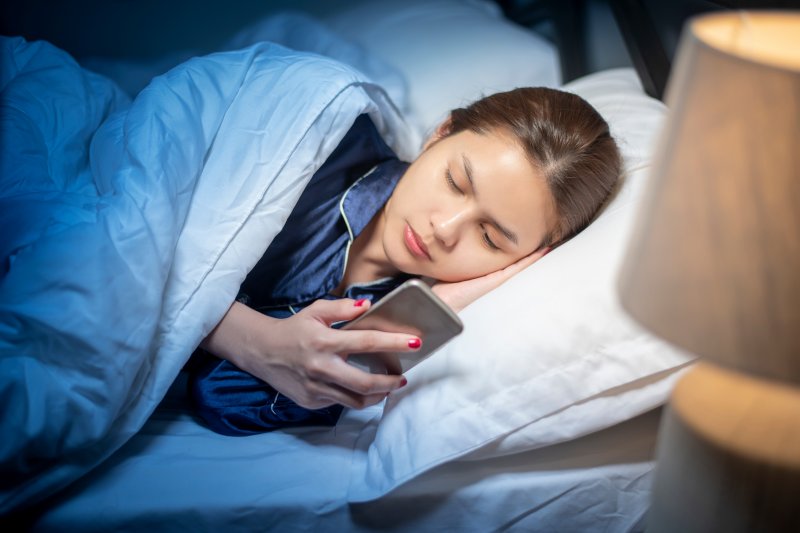
Do you often scroll through your phone right before bedtime? While this might seem harmless at the moment, the light emitted from your electronic device can harm how well you can rest. This is especially problematic if you struggle with sleep apnea, which can make falling asleep difficult. But what can you do to improve your situation? Read on to learn how cell phones and sleep apnea impact your deep rest and ways to minimize their effects!
How Do Electronic Devices Affect Your Sleep?
Whether you’re looking through your phone or watching TV, electronic devices typically emit what is called blue light. Since you’re generally exposed to this throughout your day, it may disrupt your ability to produce melatonin. This is the essential hormone that helps you go to sleep. Instead, blue light signals to your brain that it needs to wake up. Although this can be helpful in the daytime, it can create problems for you at night, as you may have more difficulty falling and staying asleep. This is especially harmful to someone who is already experiencing sleep apnea.
Are There Ways to Reduce the Impact of Blue Light?
Bright lighting typically tricks your brain to think it’s daytime, preventing you from producing enough melatonin to get good-quality sleep. To prevent this and minimize the effects of blue light, it’s best to turn off your electronic device at least an hour before bedtime and to lower the lighting in your house. Try other activities like reading a book or listening to music instead of looking at a screen. However, if you aren’t able to avoid blue light, then you might consider getting orange-tinted glasses that can cancel out your exposure. By wearing them a few hours before bed, you can begin to see a positive difference in your rest cycle.
The Significance of Sleep Apnea Treatment
Limiting the effects of blue light is crucial if you struggle with sleep apnea—a condition where temporary lapses of breathing happen during rest and disrupt your circadian rhythm. This can increase the risk of various health issues, including heart disease, weight gain, depression, high blood pressure, and diabetes. After consulting your dentist, they may provide an oral appliance that will shift the position of your lower jaw, allowing your airway to stay open for better rest.
By combining this treatment with habits like turning off your phone before bed, you can ensure you have a higher quality sleep in the long run! Speak with your dentist if you’re interested, and they’ll be more than happy to help.
About the Author
Dr. Michael E. Michel received his dental doctorate from the University of Missouri-Kansas City School of Dentistry and has delivered outstanding care for over four decades. He’s also pursued continuing education to refine his skills and has advanced training in dental sleep medicine. He provides a vast selection of treatments, including TMJ and sleep apnea therapy to help patients rest easier. If you’d like to schedule a consultation, visit his website or call 785-273-0802.
